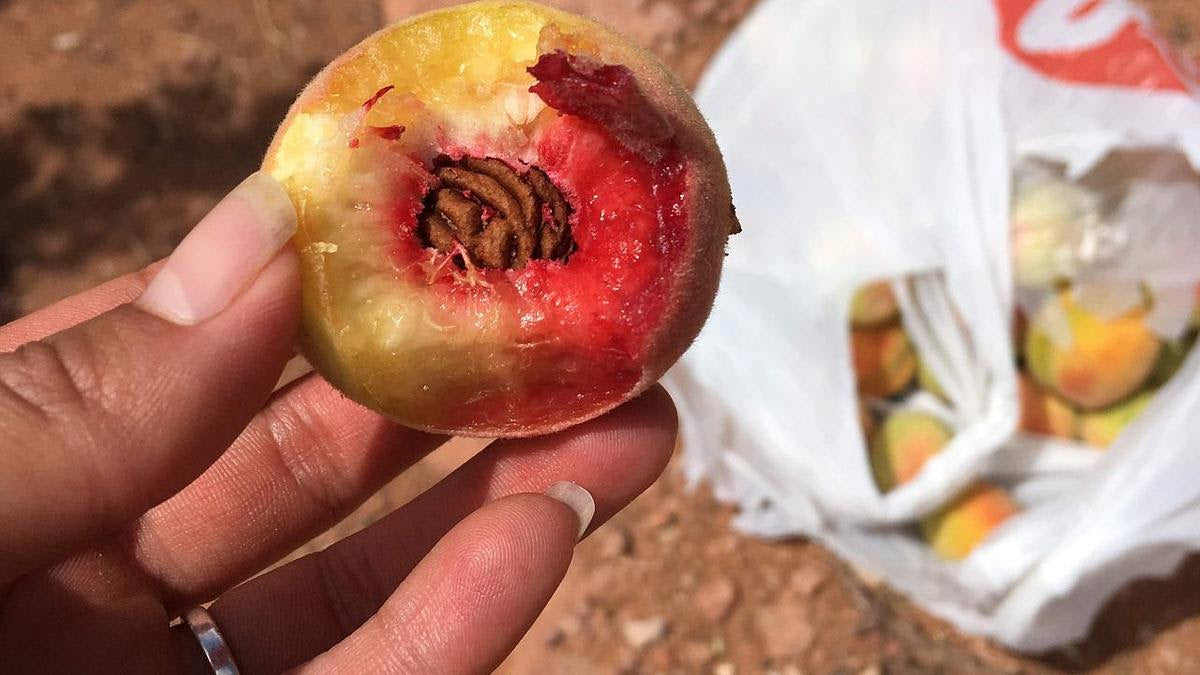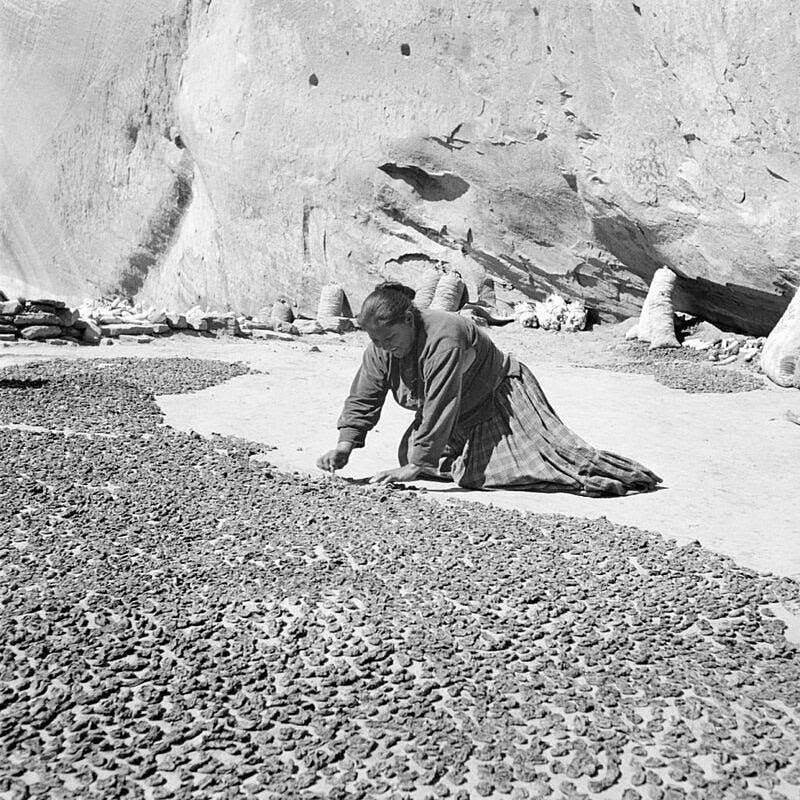PEACH 'Indian' --Prunus persica--
PEACH 'Indian' --Prunus persica--
Couldn't load pickup availability
"I first read about this holy grail of American stone fruit back in 2001. The idea that our modern ideas of tree orchard techniques had come with early European settlers had never occurred to me, but to be presented with an antagonistic view and from the perspective of Native Americans, all at once, had a significant influence on the birth of my plant brain.
300 year old journal accounts of ‘wild overgrown, orchards with, with trees of all sizes growing amongst varying degrees of ripened fruit, both on branch and scattered on ground’ painted a picture that resonated deep. I knew at that point, I had to have one of these enigmatic peaches and since that day, reading about these mythical plants, I have scoured both in print and online and until this year had no luck finding a RELIABLE source. ( I stress reliable, as any plant collector/preserver knows, rainbow flowers don’t exist.) When it comes to fruit trees, everything on the market is grafted including the ’indian peach’, and therefore NOT an Indian Peach. And furthermore when speaking of preserving specific genetics that have been passed down for hundreds of years, the verbal information/confirmation is everything, and so significant to the value of the preservation process. I imagine it like we are the crowd and the plant is the performer, jumping blindly, relying on the hand of the many to prevent falling to the ground.
And so finally with one arm held high, I present to you the Indian Peach in all its glory."
Peaches have grown in the Four Corners area for generations. Although peaches are not native to America, genetic analyses show that these peaches are significantly different from modern cultivars. Scholars believe that the Pueblo communities in the Southwest were the first to receive peach seeds from the Spanish. These small peaches fruit tremendously in 3 years from seed. The seeds grow true, unlike commonly grafted varieties. Navajo or Indian Peach is disease resistant, drought tolerant, and able to withstand harsh winters. Even the growth and pruning practices differ among this ancient heirloom. One Hopi elder said that pruning the trees was traditionally frowned upon. "Those seeds, just like the corn plant, are revered as our children." French historian Antoine-Simon Le Page du Pratz wrote in 1758 that "Our colonists [French] plant the peach stones about the end of February, and suffer the trees to grow exposed to all weathers. In the third year they will gather from one tree at least two hundred peaches, and double that number for six or seven years more, when the tree dies irrecoverably. As new trees are so easily produced, the loss of the old ones is not the least regretted." Ask for this rare fruit tree at our Travelling Plant Show!
Above, a Navajo woman in the 1930s dries peaches in the sun.
Tags: Archived, Da, Drought tolerant, Fruit, Peach, Perennial fruit, Tree/shrub
Share




